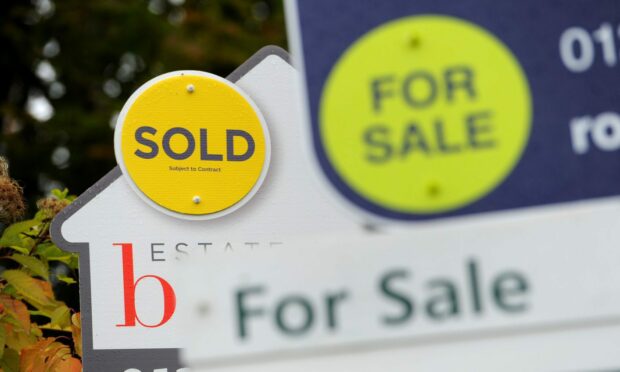Surveyors have seen the longest stretch of shrinking buyer demand in the housing market since the early stages of the coronavirus pandemic.
Despite this, UK house prices continue to move firmly upwards and are still expected to be higher in a year’s time, according to the Royal Institution of Chartered Surveyors (RICS).
A net balance of 25% of property professionals reported new buyer inquiries falling rather than rising in July, marking the third month in a row of an overall decline.
The RICS report said: “As such, this marks the third successive report in which this indicator has been in negative territory, thereby representing the longest stretch of falling demand seen since the early stages of the pandemic.”
The previous stretch of falling demand took place in March, April and May 2020.
A dip in new buyer inquiries was seen all across the UK generally over the latest survey period.
Expectations among property professionals for sales in the next 12 months were the most downbeat since March 2020 – the month that the coronavirus lockdowns started.
Cost of living
Higher interest rates and the cost-of-living crisis were cited by contributors to be causing the drop in market activity.
The latest survey was carried out before the most recent Bank of England rate hike last week, which was the biggest single rate jump since 1995, which according to calculations by UK Finance adds around £50 per month on to the cost of the average tracker mortgage outstanding.
Lack of stock
A lack of stock, however, is continuing to put an upward pressure on house prices.
A net balance of 63% of surveyors reported an increase in house prices during July rather than a decline, and while this is more moderate than a recent high of 78% in April, it is comfortably above the long-term average and indicates a firmly upward trend, RICS said.
Looking further ahead, while price expectations for the 12 months ahead have eased, the latest survey findings still indicate that house prices will be higher in a year’s time than they are now.
Lettings market
In the lettings market, meanwhile, tenant demand continues to rise, with a net balance of 36% of property professionals reporting an increase.
With new landlord instructions declining, rents are expected to rise sharply over the near-term, with all parts of the UK anticipated to see a further pick-up, RICS said.
Tarrant Parsons, senior economist at RICS, said: “Amid a backdrop of sharply rising living costs, slowing economic growth and higher interest rates, it is little surprise that housing market activity is now losing some momentum.
Monetary policy
“With monetary policy set to be tightened further over the coming months, sales expectations point to a further softening in transaction volumes going forward.
“Nevertheless, with respect to house prices, limited supply available is still seen as a crucial factor underpinning the market.
“Although house price growth is likely to continue to ease, respondents still anticipate prices will be modestly higher than current levels in a year’s time.”
Tom Bill, head of UK residential research at estate agent Knight Frank, said: “Supply is so low because many people have taken a summer holiday for the first time in two years.
“Autumn will provide the acid test for the property market and we expect annual price growth to slow to single digits as supply picks up and demand cools.”
Read more…
Check the average house prices and rents in your area with our Housing Market Tracker.






Conversation